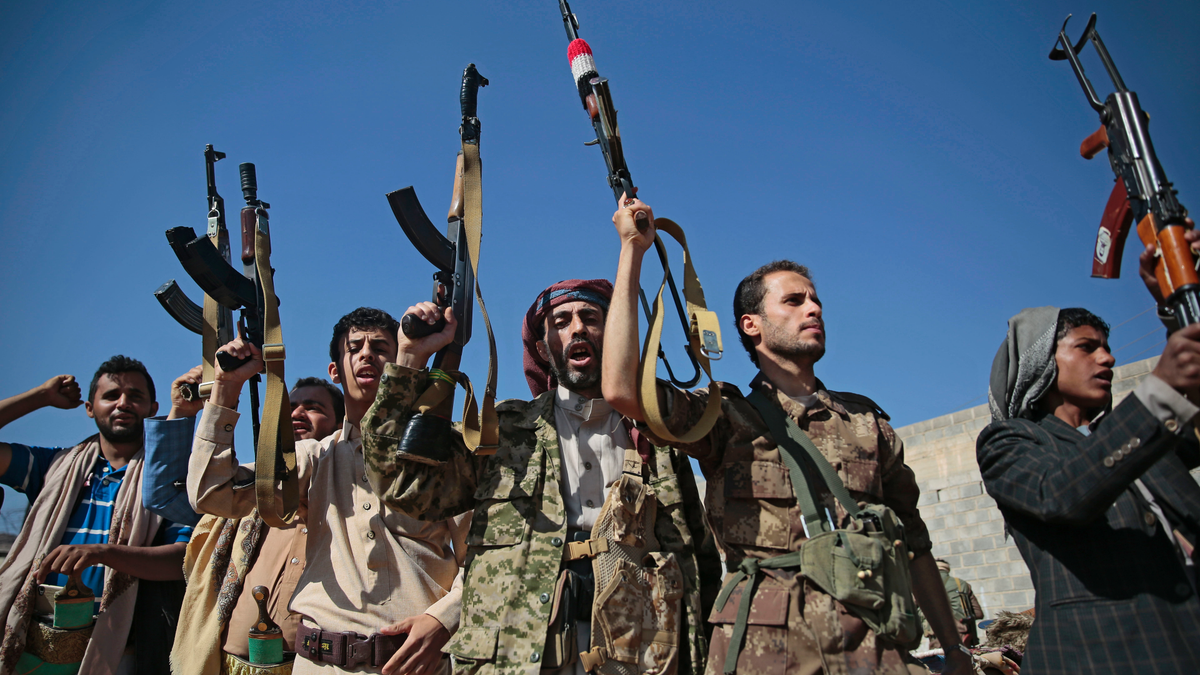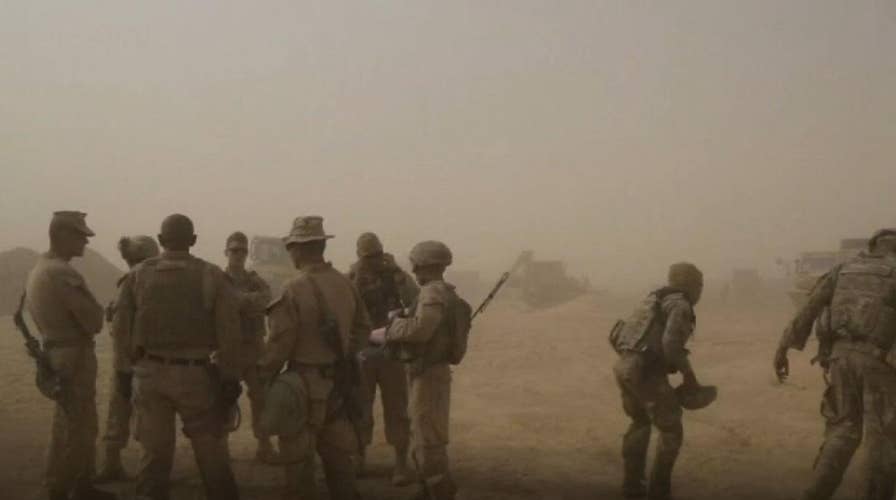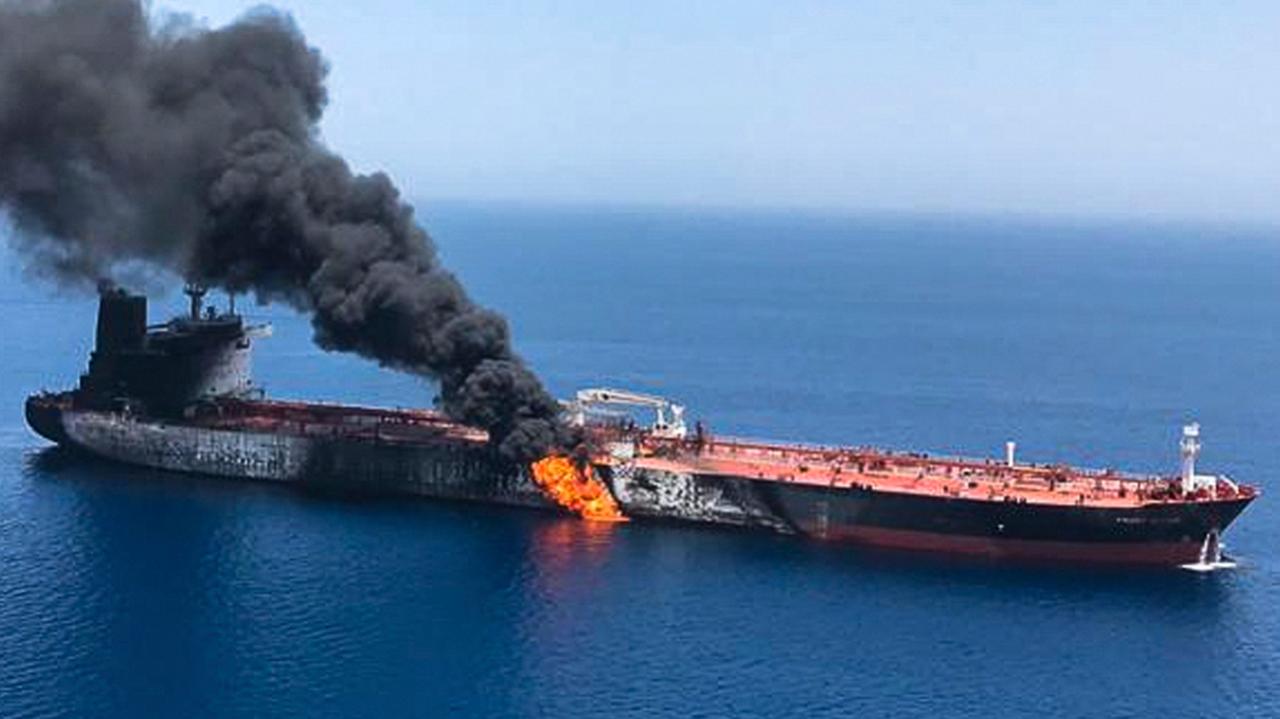Iranian-backed rebels in Yemen claim responsibility for drone attacks on Saudi oil pipelines
The Pentagon increases America's military footprint in the Middle East to counter an unspecified Iranian threat to U.S. troops.
As the smoke settles in the Gulf of Oman following an attack on two Japanese-operated oil tankers – which President Trump firmly blamed on Iran Friday after assessing intelligence – there is growing alarm over tensions between Iran and its arch-nemesis Saudi Arabia inside Yemen, with U.S. weaponry at the center.
“This is an evolving topic; these weapons are getting handed off to a vast range of militias,” Philippe Nassif, Advocacy Director for the Middle East and North Africa at Amnesty International, told Fox News. “There are a lot of weapons floating in Yemen, and this isn’t a new issue. We have seen this happen for years in parts of the world.”
U.S. involvement in the protracted Yemen conflict, which has stretched on for more than five years, has evoked much ire between the White House and Congress. While the latter has sought incessantly to pass resolutions that would bring an end to the U.S. arming its Gulf allies in the region, the Trump administration evaded the objections by declaring a national emergency in order for Saudi Arabia and the UAE to acquire a further $8 billion in of arms.
The Kingdom initially entered the fray in early 2015 in the months after the Houthi rebels took control of the capital Sana’a, which Riyadh viewed as an incursion imposed by Tehran. Since then, the Yemen black market for all things military has been thriving.
“Every type of weapon is being bought and sold as well as body armor, drugs. These are out in the open markets and not hidden away and it's profoundly concerning,” Nassif said. “Can we trust weapons not to be handed over and sold? These weapons could then end up in other areas, like Chad or Niger.”
While human rights groups, government officials and the broader international community have routinely raised voices of concern with regards to the Saudi-led coalition striking civilian targets, potentially with the assistance of U.S weaponry, less has been said about the possibility of such weapons ending up in enemy hands in the chaotic and lawless theater of war – both Iran proxies and extremist Sunni militias.
As it stands, Yemen is a mish-mash of warring factions with the Shia-centered Houthi militias in the north and Al Qaeda-centric militias dominating eastern swaths of the country. In the past, an array of images and reports have emerged indicating that both the Houthis and Al Qaeda have captured some form of U.S. arms, ranging from MRAP vehicles and TOW anti-tank missiles to rocket launchers, rifles, and grenades.
TRUMP NOT 'WORTHY' OF RESPONSE, IRAN'S SUPREME LEADER SAYS AS JAPAN'S ABE TRIES TO EASE TENSIONS
The United States is the largest arms supplier to Saudi Arabia and the UAE, and between 2013 and 2017 alone Saudi purchased $112 billion in weapons. While there are distinct Pentagon rules that arms transfers cannot be moved to a third party without authorization, critics argue that monitoring or enforcing such regulations are not comprehensive enough.
“When these weapons leave U.S. hands, we ultimately have little ability to control where they go,” said Defense Priorities fellow and former Marine Captain Gil Barndollar.

In this Dec. 13, 2018, file, photo, tribesmen loyal to Houthi rebels hold up their weapons as they attend a gathering to show their support for the ongoing peace talks being held in Sweden, in Sanaa, Yemen. The United Nations has cast doubt on the claims by Yemen’s Shiite rebels to have withdrawn from the port of Hodeida, saying such steps can only be credible if all other parties can verify them. (Iran)
He furthermore emphasized that it is “almost guaranteed” that U.S. arms shipments have ended up in the Houthi arsenal, and by default at the mercy of Iranian interests, which could then potentially be a threat to the U.S. forces currently in the region.
Tehran is believed to be closely assessing U.S. military technology, which they often attempt to mimic, raising further red flags. The Houthis have also long been accused, which they deny, of using child soldiers – a blatant violation of international law.
An additional cause for concern, Barndollar pointed out, are weapons sliding into the hands of al-Qaeda affiliates and other hardline Salafi groups.
“U.S. military involvement is prolonging the conflict. Ending offensive arms sales would encourage the Saudis to settle,” he contended. “The coalition invaded Yemen more than four years ago. Despite a massive asymmetry in technology and forces, the Houthis have hung on to their heartland and to Sana'a, the capital. Despite all their U.S.-supplied firepower and their expenditure of more than $4 billion a month on the war, there is little evidence the Saudi-led coalition can bring this war to a successful conclusion.”
OPENLY GAY REPORTER PRESSES IRAN'S TOP DIPLOMAT ON DEATH PENALTY FOR HOMOSEXUALS
Jim Phillips, a research fellow for Middle Eastern Affairs at The Heritage Foundation acknowledged that while U.S.-made vehicles and arms have been captured by the Houthi rebels in battle, the greater worry is the “illegal transfer to the Houthis of Iranian arms including rockets, armed drones, and ballistic missiles which have been used to attack civilian targets.”
“Iranian arms transfers, which are illegal under multiple UN Security Council resolutions, pose a much greater threat than U.S. arms to civilians in Yemen and elsewhere on the Arabian Peninsula,” he said.
Phillips pointed out that other non-state actors, who are anti-Western but have taken up the task of fighting the Iran-linked Houthis, have benefited from a “leakage” of U.S.-supplied arms.
“The U.S. needs to make sure that Saudi and UAE military forces that have bought such arms are not transferring them in violation of their end-use requirements,” he said, but stressed that ultimately he did not believe that U.S. arms are perpetuating the calamitous war.
The Trump team has staunchly defended the controversial arms sale by advocating that Arab allies need to be able to defend themselves against the growing threat of Iran, along with the bonus of bolstering the U.S economy in terms of money and jobs for the defense industry.
“If such arms were cut off, the Yemeni government, Saudi Arabia and the UAE would continue to fight the Iran-backed Houthis, who continue to attack civilian targets in those countries with increasingly sophisticated Iranian-supplied weapons,” Philips noted. “Those governments would continue fighting to protect themselves, but with arms imported from Russia or China, instead of the U.S., that could pose greater threats to Yemeni civilians.”
A spokesperson for the Houthis, Mohamed Abdul Salam, told Fox News that early in the war they received minimal assistance from Tehran, but the relationship grew along with the conflict and the Saudi-backed intensity of the fighting.
Meanwhile Yemen's rebel Houthis launched drones at Saudi Arabia's Abha airport, the second such attack this week. At attack Wednesday wounded 26 people. Late last month. they struck a Saudi oil pipeline – rendering it temporarily shuttered. And before that, another sabotage of four oil tankers, two of which belonged to the Saudis.





















